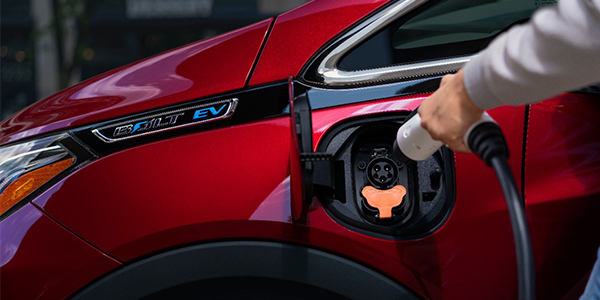Maine legislators and officials gave a preview of their work this year in implementing the state’s energy policies while keeping costs to consumers low.
Following a surge of new climate-related legislation passed in Maine last year, state legislators are now trying to balance the need to meet mandates without burdening ratepayers.
Understanding the financial ramifications of energy-related policies “is constantly my No. 1 priority,” Sen. Trey Stewart (R) said Wednesday during a preview of the joint Energy, Utilities and Technology (EUT) Committee’s work this legislative session.
Stewart called Maine’s new climate laws “admirable,” but he said the costs of achieving them “will become a problem at some point.” Last year the Legislature passed legislation relating to, among other things, the state’s emissions and renewable portfolio standard; net metering; offshore wind; heating; electric vehicles; and transmission alternatives.
This year’s legislative session will give lawmakers a chance to adjust the bills passed last year, Dan Burgess, director of Maine’s Energy Office, said during the webinar, hosted by E2Tech.
“I think [this session] is an opportunity to continue the progress that we’ve made in order to create economic opportunities within the energy space and to ensure that we’re keeping affordability in mind,” he said.
Rep. Nicole Grohoski (D) said that her priority for this session is to make sure that the energy transition is affordable and equitable for residents. She said the EUT Committee will consider a group of bills that deal with financing and accessing lower-cost capital.
Those bills address, for example, commercial property-assessed clean energy (C-PACE) financing, heat pump incentives and even a green bank, she said. In addition, there are legislative efforts related to creating a consumer-owned utility to unlock access to revenue bonding and low-cost capital for a large-scale grid buildout to support electrification of major sectors.
Grohoski said that she is sponsoring a bill this year to create a generation authority in the state that would also provide nontaxable low-cost capital through revenue bonds for local clean energy developers.
New Reports
Burgess said that the Energy Office will release information soon related to progress of the Maine Climate Council’s strategic initiative to create a clean transportation roadmap for the state. Initial estimates from the council show that the state needs to have 41,000 light-duty EVs on the road by 2025 to meet its emissions goal for 2030.
The roadmap, Burgess said, will help identify issues that must be addressed to advance clean transportation across all EV classes and public transportation.
The Energy Office also is preparing to release a report about the Climate Council’s call for modernizing Maine’s buildings. Burgess said the report will identify the current state of building efficiencies and opportunities for advancing home weatherization programs, appliance standards and C-PACE programs.
Commission Initiatives
The Maine Public Utilities Commission is working to overcome significant technical challenges related to clean energy mandates put in place by the Legislature, while also acknowledging the importance of minimizing costs for consumers and businesses.
Chairman Philip Bartlett said the commission currently has a working stakeholder group of industry and utility representatives to examine the interconnection of distributed energy resources. The working group issued a notice Tuesday seeking input on the review process for small DER projects. Bartlett said that some small projects are subject to a higher level of review than others, causing “significant delay and added expense.”
As part of that inquiry, he said, the group will consider penalties for utilities if they do not meet interconnection requirements.
The PUC also will be opening a proceeding to looking into Central Main Power’s (CMP) recent claim that it needs to complete upgrades at more than 100 substations to connect new DERs to the grid.
“It’s important to consider the timeline with respect to when CMP became aware of this problem … and how projects are being impacted,” Bartlett said.
To ensure that Maine can interconnect high levels of DERs in the future, the commission will open a separate proceeding to consider distribution system design changes. The proceeding also will work to improve data collection and transparency.
“It is important to assess what is needed for the grid of the future, and we cannot minimize costs without good information to help drive decision-making,” Bartlett said.




